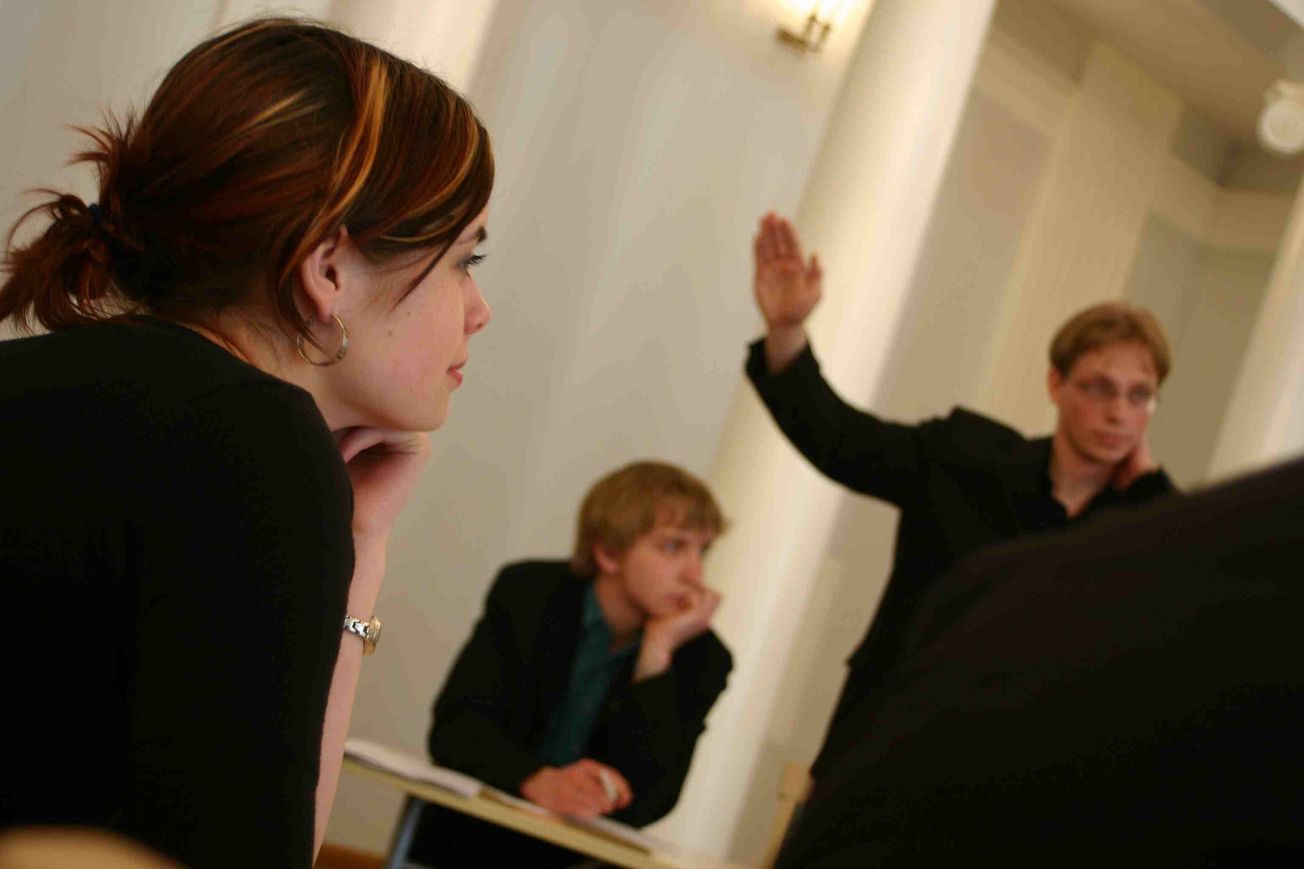Today we hear from Lucy Russell about her experience working for Debate Mate, an educational charity that trains non-selective state school children in the art of public speaking and debating.
I started debating at school when I was about 14. It was offered as lunchtime club at the school I attended, and I was encouraged to go by my English teacher, who thought I might enjoy the mental sparring and competitive nature of it. He was right, and before long I was competing at schools debating competitions at universities around the UK.
It didn’t take me very long to notice that the only schools that did debating were private schools, and usually boys schools, several of which had debating as part of their curriculum. At every competition we would see the same faces, the same people and the same well-known public schools competing to be the most eloquent and I could never really understand why it was that being taught public speaking skills should be the preserve of the privately educated.
It was when I was looking into this that I discovered Debate Mate. Debate Mate is an educational charity that offers debating and public speaking training in non-selective state schools in areas of high child poverty. They run weekly after school programmes in these schools, with the aim of improving children’s confidence and leadership skills and helping them work towards competing in debating competitions around the UK. They are based in London, where I first came across them, but expanded into Bristol a few years ago and currently work in several schools here.
When I arrived in Bristol 2 years ago, Debate Mate was one of the first things I signed up to do and it’s been an important constant in my University life. I worked at the same school for the last two years, running an hour long session every Monday after school for children in years 7-10.I can safely say I don’t think I could be doing a more rewarding job, and I’ve been lucky to have the same school two years running, so I’ve been able to see the same children grow in confidence and expressing their opinions.
Every week I let my students suggest any topics that they want to discuss and there is always a wide range of interests, from the school uniform rules to deforestation and poverty in the UK. Even after two years of covering several schools in Bristol and London, I find that I’m always still slightly blown away by just how articulate so many of the young people I get to work with are, and how hard they work to stay well-informed, and discuss and form new opinions.
I honestly think of my classes as a break from University, as while my English degree doesn’t provide too much time pressure, I think it can be easy to get stuck in your own head at University and forget that Bristol is a huge city with loads going on. I’ve found that volunteering and community involvement is probably one of the best ways to break out of that, and have a really important social impact at the same time, and I do feel incredibly lucky that I get paid to do something that I enjoy this much.
Featured image: Flickr / Basti Hirsch ッ
Do you have a part-time job? We want to hear from you! Get in contact!









